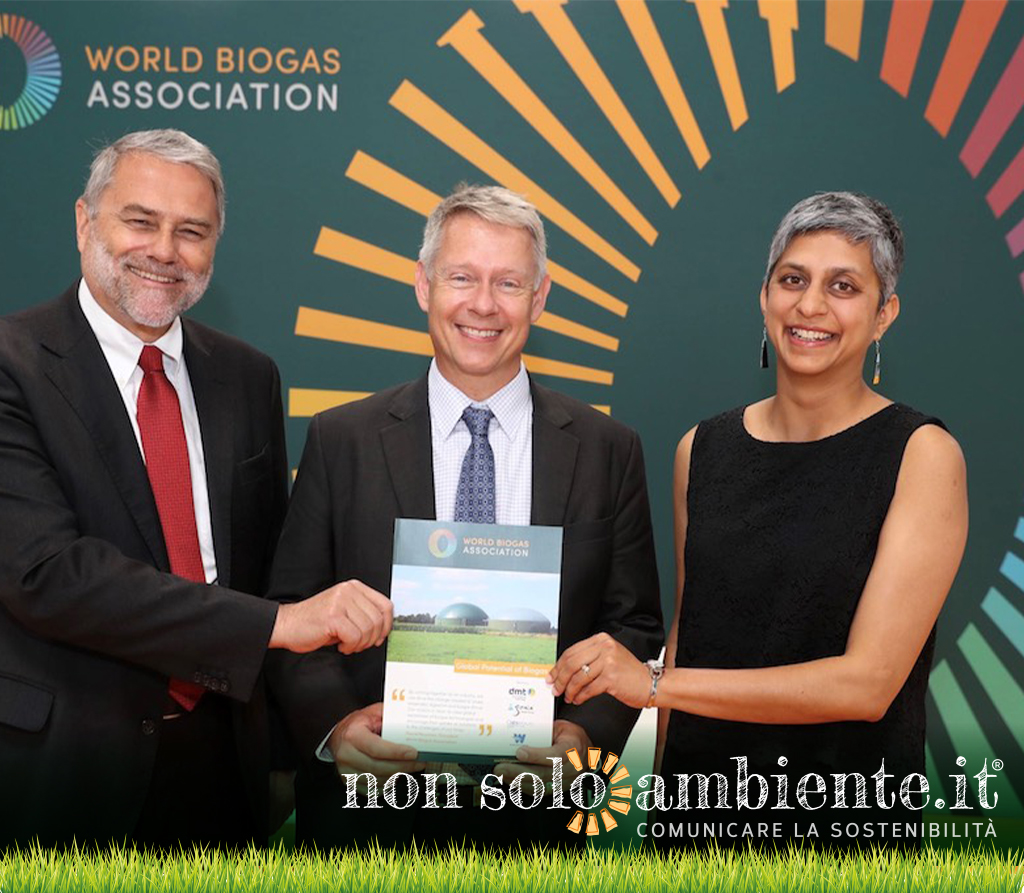
Ultime Notizie

The World Biogas Association (WBA) has published the 2019 report on biogas and Anaerobic Digestion (AD). This report aims to highlight the potential of AD as a technology to generate renewable energy, abate greenhouse gas emissions and recover organic nutrients and carbon for use on soil.
On July 25th 2019, the June report of biogas has been officially published by the World Biogas Association. The report was launched at the World Biogas Summit on July 3rd 2019. In the future, the potential of biogas production will be larger than hitherto assumed when sustainable systems constitute the daily basis.
As cited in the report: “despite the array of positions on the climate crisis, the global community has indeed recognised the challenges humanity is facing, through the commitment signed in Paris in 2015. This acknowledges the need for action to counter and mitigate the effects of rising temperatures, biodiversity loss, reduced availability of drinking water, increased pressure from exceptional weather events, loss of topsoil and desertification. The development of alternative waste treatment methods (rather than simply dumping them in open spaces) and the need for non-fossil fuel-based energy sources (substituting coal, oil and gas), have led to the growth of the anaerobic digestion (AD) industry which produces biogas”.
One of the most interesting results in the World Biogas Association report is that anaerobic digestion has the potential to reduce greenhouse gas emissions. Indeed, it has been reported that emissions can possibly decrease from 4,360 to 3,290 Mt CO2eq, which is equivalent to 10-13% of the world’s current greenhouse gas emissions. This result can be achieved through the anaerobic digestion of wastes and landfill gases; moreover, thanks to the technology available, fossil fertilisers manufacture, crop burning and deforestation are avoided. The sum of these actions results in greenhouse gases reduction. According to the report, “the above means that, despite the 50 million micro-digesters, 132,000 small, medium and large scale digesters and 700 upgrading plants operating globally, we are tapping into just 1.6-2.2% of the global potential of AD. The potential for the growth of the biogas industry is therefore extraordinary and involves every country”.
The biogas industry greatly contributes to lower greenhouse gas emissions by capturing the methane that would otherwise have entered the atmosphere. Indeed, methane emissions produced by rotting food waste, sewage, farm wastes and agri-industrial process wastes are captured and subsequently transformed into electricity, heat or fuel and biofertilisers. For instance, if the energy is utilised as biomethane, it can substitute 993 to 1380 bcm of natural gas, equivalent to 26-37% of the current natural gas consumed globally.
The 2019 World Biogas report also shows the Policy Recommendations, which should be required to achieve sustainable efficienties through biogas and anaerobic digestion. The recommendations suggest a type of support which clearly vary depending on the particular geography in question (taking into consideration policies in the AD industry on European, Asian and American level).
You can download and take a look at the full report at the World Biogas Association website.
Tags:
Potrebbero interessarti ...
Snam’s commitment to sustainability at Dubai Expo 2020
13 Ottobre 2021No more chocolate by 2050 because of extreme droughts effects
22 Settembre 2021How much CO₂ do urban forests absorb?
15 Settembre 2021Iscriviti alla nostra Newsletter!
Sei un sostenitore dell'ambiente in tutte le sue forme? Allora sei nel posto giusto!
Iscriviti subito!




